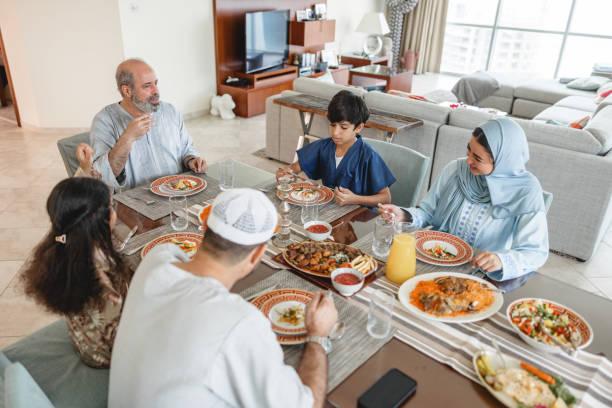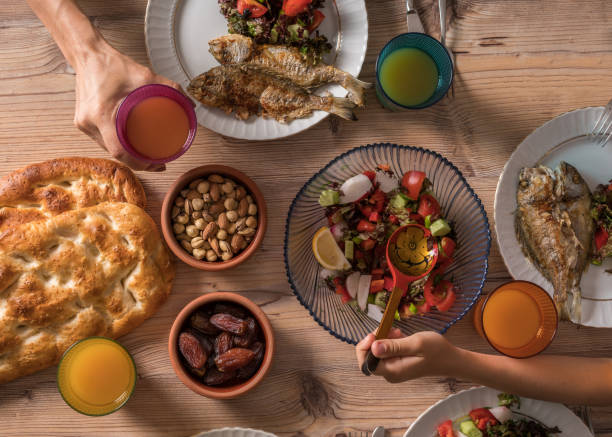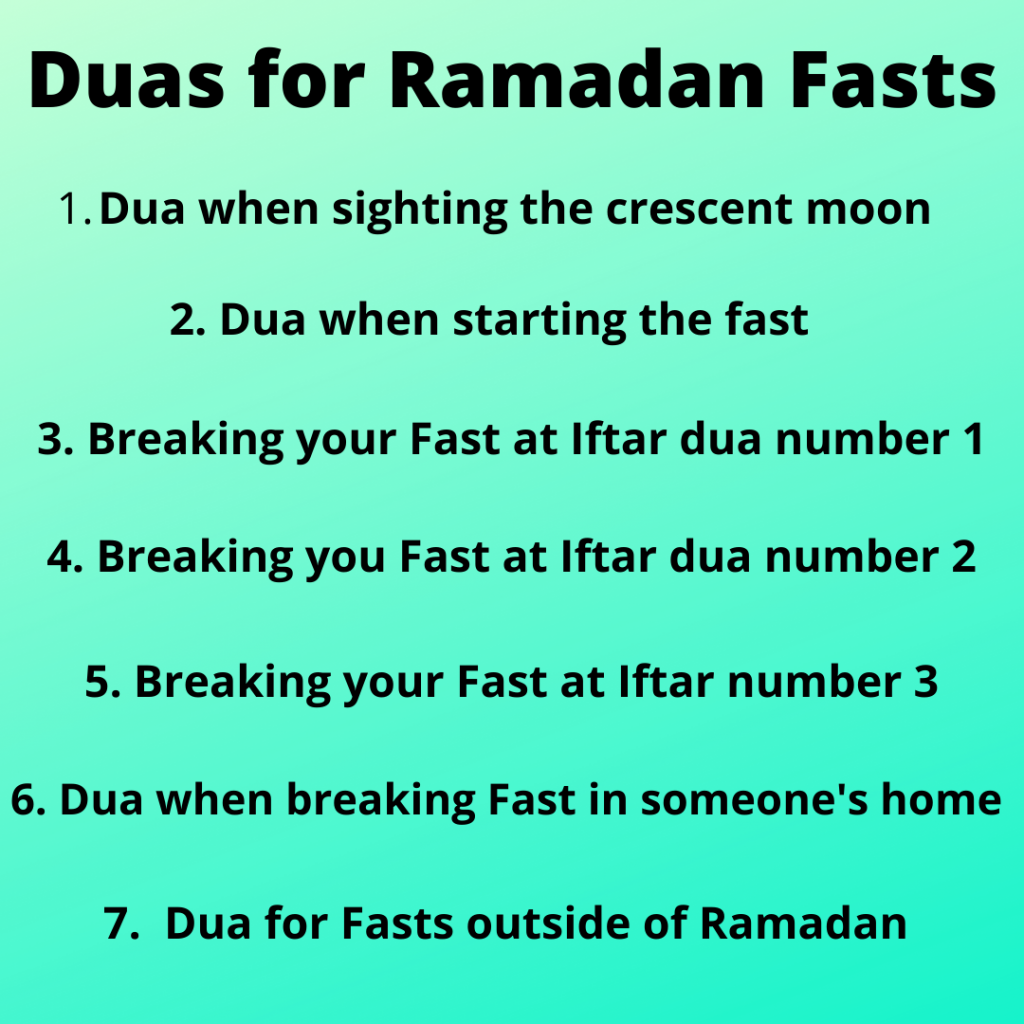Ramadan is a month of spiritual reflection and devotion for Muslims all around the world. One of the most important aspects of Ramadan is the daily fast, which is broken at sunset with a meal called Iftar. In this article, we will discuss the timing, method, Hadiths, and benefits of Iftar during Ramadan.

Timing of Iftar
The timing of Iftar varies depending on the location and time of year. Muslims break their fast at sunset, which is determined by the local time of sunset. In many places, the Adhan (call to prayer) is sounded to signal the time for Iftar.
Method of Iftar
The method of Iftar varies from place to place and from culture to culture. In some households, Iftar is a simple meal consisting of dates, water, and other light snacks. In other households, Iftar is a large and elaborate feast, with a variety of foods and drinks served.
According to tradition, the Prophet Muhammad (peace be upon him) used to break his fast with dates and water. This practice is still followed by many Muslims today. The meal is typically followed by the Maghrib prayer, which is performed soon after sunset.
It is recommended to break the fast with dates and water, following the Sunnah of Prophet Muhammad (peace be upon him). Dates are a good source of natural sugar and provide a quick energy boost after a day of fasting. Water is important to rehydrate the body after a day of fasting and is essential to maintaining good health.
After consuming dates and water, it is common to perform Maghrib prayer before starting the main meal. The main meal for Iftar usually consists of a variety of dishes that vary by region and culture. Some common foods include:
- Soup: Many people prefer to start the meal with soup, which can be made with a variety of ingredients such as lentils, vegetables, or meat.
- Appetizers: Appetizers are also commonly served, such as samosas, pakoras, or hummus.
- Main Dish: The main dish is usually a more substantial meal, which can be made with a variety of ingredients such as rice, pasta, meat, or vegetables.
- Desserts: Desserts are also an important part of Iftar, and can include traditional sweets such as baklava, katayef, or kunafa.
It is important to consume a balanced meal during Iftar, including protein, carbohydrates, and healthy fats. Avoid consuming large quantities of fried or fatty foods, as these can cause indigestion and other health problems.

Suggestions for a healthy and balanced Iftar meal include:
- Grilled or baked meat or fish with a side of roasted vegetables.
- Lentil or chickpea soup with whole grain bread.
- Brown rice with grilled chicken or fish and a side salad.
- Mixed vegetable curry with whole grain naan or rice.
- Fresh fruit salad or fruit with yogurt for dessert.
It is important to remember that Iftar is a time to celebrate and enjoy food with family and friends. It is a time to give thanks for the blessings of life and to remember those who are less fortunate.
Hadiths about Iftar
There are several Hadiths that mention the importance and rewards of breaking the fast during Ramadan. Here are a few examples:
- “The people will remain upon goodness as long as they hasten to break the fast.” (Sunan Ibn Majah)
- “The fasting person has two moments of joy: one when he breaks his fast, and the other when he meets his Lord.” (Sahih Muslim)
- “When one of you is fasting, he should break his fast with dates; but if he cannot get any, then (he should break his fast) with water, for water is purifying.” (Sunan Abi Dawud)
Benefits of Iftar
In addition to the spiritual benefits of Iftar during Ramadan, there are several health benefits associated with fasting and breaking the fast in a specific way.
- Improved Insulin Sensitivity: Fasting during Ramadan has been shown to improve insulin sensitivity, which is the body’s ability to use insulin effectively to transport glucose (sugar) from the bloodstream to the cells. This can reduce the risk of developing type 2 diabetes.
- Weight Loss: Fasting during Ramadan can also promote weight loss by reducing the amount of food and calories consumed during the day. Additionally, fasting has been shown to increase metabolism, which can help burn more calories.
- Lower Blood Pressure: Fasting during Ramadan has been found to lower blood pressure in individuals with hypertension. This may be due to a combination of weight loss and reduced salt intake.
- Improved Digestive Health: Fasting during Ramadan can also improve digestive health by giving the digestive system a break and reducing the amount of food that needs to be processed. This can reduce symptoms of digestive disorders such as acid reflux and irritable bowel syndrome.
- Increased Brain Function: Fasting during Ramadan has been shown to increase brain-derived neurotrophic factor (BDNF), which is a protein that supports the growth and survival of brain cells. This can improve cognitive function and may reduce the risk of developing neurodegenerative diseases.
In conclusion, Iftar is an important and cherished aspect of Ramadan for Muslims all over the world. It is a time to break the fast and come together with family and friends, to reflect on the blessings of the month, and to strengthen one’s faith. Through following the Sunnah of the Prophet Muhammad (peace be upon him), Muslims can benefit both spiritually and physically from this special meal.



